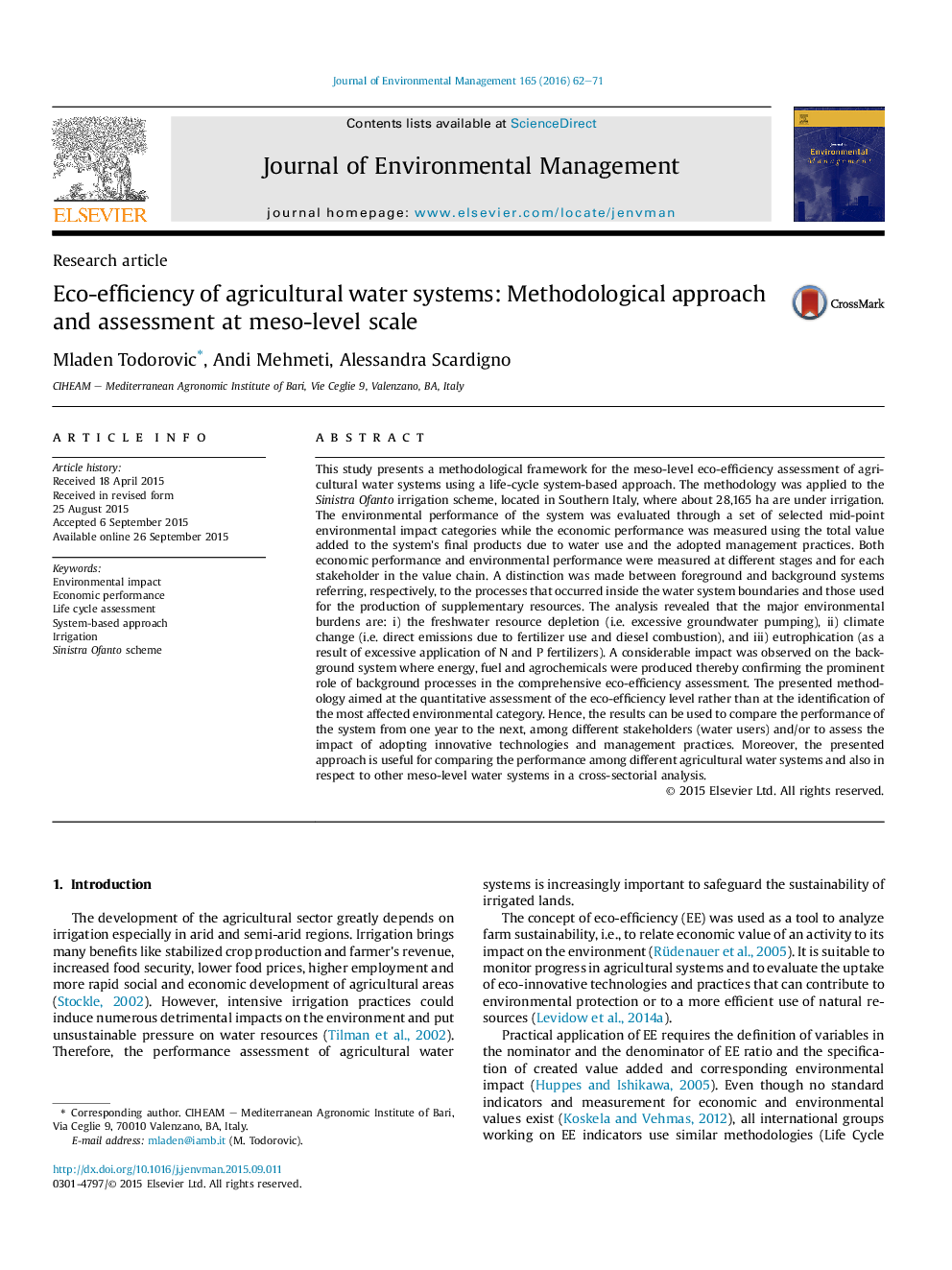| کد مقاله | کد نشریه | سال انتشار | مقاله انگلیسی | نسخه تمام متن |
|---|---|---|---|---|
| 1055474 | 1485247 | 2016 | 10 صفحه PDF | دانلود رایگان |
• A systemic LCA approach was presented for eco-efficiency assessment of irrigation schemes.
• Eco-efficiency analysis included background and foreground systems/processes.
• Background system plays a relevant role in eco-efficiency assessment of irrigation schemes.
• Groundwater withdrawal/recharge was estimated through a simplified water balance approach.
• New modeling tools (SEAT and EVAT) were tested for the irrigation schemes assessment.
This study presents a methodological framework for the meso-level eco-efficiency assessment of agricultural water systems using a life-cycle system-based approach. The methodology was applied to the Sinistra Ofanto irrigation scheme, located in Southern Italy, where about 28,165 ha are under irrigation. The environmental performance of the system was evaluated through a set of selected mid-point environmental impact categories while the economic performance was measured using the total value added to the system's final products due to water use and the adopted management practices. Both economic performance and environmental performance were measured at different stages and for each stakeholder in the value chain. A distinction was made between foreground and background systems referring, respectively, to the processes that occurred inside the water system boundaries and those used for the production of supplementary resources. The analysis revealed that the major environmental burdens are: i) the freshwater resource depletion (i.e. excessive groundwater pumping), ii) climate change (i.e. direct emissions due to fertilizer use and diesel combustion), and iii) eutrophication (as a result of excessive application of N and P fertilizers). A considerable impact was observed on the background system where energy, fuel and agrochemicals were produced thereby confirming the prominent role of background processes in the comprehensive eco-efficiency assessment. The presented methodology aimed at the quantitative assessment of the eco-efficiency level rather than at the identification of the most affected environmental category. Hence, the results can be used to compare the performance of the system from one year to the next, among different stakeholders (water users) and/or to assess the impact of adopting innovative technologies and management practices. Moreover, the presented approach is useful for comparing the performance among different agricultural water systems and also in respect to other meso-level water systems in a cross-sectorial analysis.
Journal: Journal of Environmental Management - Volume 165, 1 January 2016, Pages 62–71
